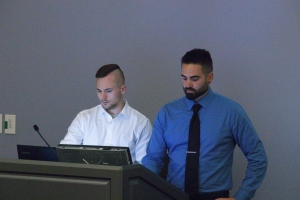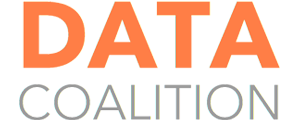DynaSurf – A Research Platform for All Industries
 Fairfax, Virginia, June 14th, 2019 –DeepBD has several products in the pre-production phases for launch that can change open source research for the specific needs of any individual company. Our upcoming product, DynaSurf is designed to be personalized for any subject matter using artificial intelligence and computational linguistics. In all, DeepBD’s platform can open an array of industries to the competitive advantage of open source research using big data.
Fairfax, Virginia, June 14th, 2019 –DeepBD has several products in the pre-production phases for launch that can change open source research for the specific needs of any individual company. Our upcoming product, DynaSurf is designed to be personalized for any subject matter using artificial intelligence and computational linguistics. In all, DeepBD’s platform can open an array of industries to the competitive advantage of open source research using big data.
Industry Need
In various industries, the ability to search through valuable data is often limited. The data that a company needs to reference for marketing or business development purposes is usually confined to IT departments or scattered in company excel sheets that need constant updating. Also, Instead of searching the vast pockets of the internet, smaller industries with niche interest need a data-centric solution where all the relevant data points can be easily explored in one place. Overall, cheap accessible open-source research tools like Google cannot search for complex topics with nuisance
Furthermore, the real challenge does not lie in data aggregation but, in curating disparate data sources and finding patterns. The real game changer for most industries is the ability to can to turn data into useful insights that are easy for end users to understand and use. Even professional data analytics software programs are usually inaccessible for small companies due to high pricing. Moreover, Many companies do not have staff data specialists to perform complex data analytics. Finally, DeepBD’s expertise in data absorption and curation offers an inexpensive platform for data solutions that can help any industry competitive edge in open source intelligence gathering.
How DynaSurf Works
DynaSurf is a powerful research platform that is based on semantic ontologies or in much simpler terms; the platform develops a dictionary around a specific subject. It is a single pane of glass across multiple data sets that can be easily configured to any topic. Our system enables users to search for various available databases, news articles, document collections, and social media posts. Additionally, Dynasurf is powered by computational linguistics unlike other search applications to continuously analyze and classify information transforming it into actionable business intelligence. This revolutionary capability allows users to research concepts or abstract language, rather than being forced to focus on specific terms. Subsequently, our advanced search capability allows users to beyond data points that may represent only a small portion of relevant information.
DynaSurf Features
Also, key features of the DynaSurf platform include; the ability to create search agents for any topic of interest in real time, schedule based reports based on previous search results, and much more. All the front-end features of our product are part of one software interface. DynaSurf s can be rapidly configured to accommodate new use cases and product lines. Overall, our reusable software components and modular design enable the fast creation of new features in almost assembly-line fashion for all industry needs.
Network Analysis Tool
Finally, using machine learning DynaSurf allows users to find patterns buried within the data and provides tools that let you analyze how that information is connected. The addition of real-time analytics with machine learning algorithms feeds our network analysis tool. Users can easily aggregate and mine data to understand hidden connections. Our system presents critical paths and groupings between data elements, which leads to easy to use open-source analysis tools for new business opportunities.
DynaSurf’s Impact
Furthermore, one of DeepBD’s goals is to build technology that can democratize the use of big data, potentially in any industry, for any business, large or small. DynaSurf is the first step in such efforts for data democratization. We believe our technology can lead to more data-centric research methods for unprecedented professional growth. From big investors using big data to make informed decisions to small business owners trying to compete in a globalized economy.
Students Take On Real-Life Tech Problems: DeepBD Partners with the College of Charleston
 Fairfax, Virginia, May 24th, 2019 – This spring DeepBD Inc sponsored students from the Computer Science Department at the College of Charleston. The program took place during the student’s capstone project and aimed to help solve real-world problems for high-tech firms in the region. The Department of Computer Science, Chair Sebastian van Delden commented that both students and the companies benefit enormously from the program.
Fairfax, Virginia, May 24th, 2019 – This spring DeepBD Inc sponsored students from the Computer Science Department at the College of Charleston. The program took place during the student’s capstone project and aimed to help solve real-world problems for high-tech firms in the region. The Department of Computer Science, Chair Sebastian van Delden commented that both students and the companies benefit enormously from the program.
DeepBD and Charleston
DeepBD’s research and development team in Charleston worked with two teams of students to help develop and refine company software. The ability to work directly with DeepBD’s Technology allowed students to learn skills for the workplace that involved advanced coding, product development, machine learning, and program analysis.
Mobile App Team
The first team of students was tasked with developing a mobile application for our latest product GovSurf and a separate mobile application for GovSurf subscribers. The following students from the College of Charleston participated in technology development efforts for the Mobile App Team; Stephen Green, Erik Helm, and Kyle Sheeley. The students used C#/.net and Xamarin to create a dedicated iOS and Android compatible application that provides the powerful GovSurf functionality to the end user’s smartphone. Also, team members were responsible for all aspects of the design from accessing the DeepBD servers, managing API calls, and creating an easy to use interface. Furthermore, By the end of the semester, the students returned a fully-functional program that will serve as the foundation for future mobile app development within DeepBD.
Concept Search Team
Then, the second team of students from the College of Charleston was responsible for improving the speed and performance of GovSurf’s existing concept search functionality. Students on the concept search team included; Erin Murphy and Nick Alonso. GovSurf’s Concept Search goes above and beyond a simple keyword search, running complex machine learning algorithms over user-provided text or files to locate existing documents in the DeepBD databases that share similar concepts and themes. Moreover, The students used a novel mix of several machine learning techniques to develop a powerful new model from our extensive database of government information. New input is processed through this model, rapidly returning only the most relevant documents to the end user.
Project Presentation
The student’s worked with the DeepBD team from January to April and presented their final project at “Harbor Walk After 5” on April 29th, 2019. Stephen Green, a student on the Mobile App Team said “My time spent with DeepBD this semester gave me invaluable experience outside of the classroom. I was able to see how companies operate and how important technology and communication are to success. I worked with new software and got to see some of the decision making behind closed doors on why companies choose certain software over others. I learned a lot this semester working with deep bed and I’ll be able to build off of this moving forward in my career.”
In all, The DeepBD Team was honored to work with the student of College of Charleston and hopes to continue to work with students on a future project that will encourage technology development for the larger community of Charleston.
Transforming Federal Contracting: DeepBD Launches GovSurf Artificial Intelligence Platform
 Fairfax, Virginia, May 23rd, 2019 – DeepBD Inc. is excited to announce today the launch of GovSurf, a new artificial intelligence (AI) tool designed to facilitate and enhance business development for the industry federal contracting.
Fairfax, Virginia, May 23rd, 2019 – DeepBD Inc. is excited to announce today the launch of GovSurf, a new artificial intelligence (AI) tool designed to facilitate and enhance business development for the industry federal contracting.
Our Platform
The Launch of GovSurf leverages the latest advancements in cognitive computing technology. Our platform processes massive data streams, allowing DeepBD to inspect and analyze vast amounts of information as it is collected. It combines the power of machine learning with human insight to define relationships and connections between data sets regardless of structure or volume. Moreover, with the help of big data analytics, we are able to discover patterns that would otherwise be impossible to find. The system ingests any type of open source data in the field of federal contracting. Also, We use leading AI innovation to overcome data analysis challenges to curate and find patterns within the data that can be turned into actionable intelligence.
GovSurf Features
Furthermore, GovSurf is the first product of several of DeepBD’s commercial solutions that are expected to roll out in 2019. GovSurf is designed specifically to identify federal contracting opportunities. The GovSurf platform is specifically geared toward government contracting officers seeking to grow their business development beyond simply writing and submitting proposals. Additionally, Our platform provides the business development executive with up-to-the-minute business intelligence currently unavailable in the marketplace. DeepBD offers the GovSurf application on a subscription basis, with individual or group subscriptions offered and no long-term commitment. With our pricing, DeepBD intends to become a differentiator in the government contracting industry.
Our Product Lines
DeepBD has other products in late-stage development including the Accelerated Language Intelligence Application (ALIA), a twenty-seven language translation platform based on neural machine intelligence and powered by blockchain technology that continually improves the more that it is used. Also, our upcoming multi-industry platform, DynaSurf creates a single pane of glass that adapts to the user’s interest specific interest. Moreover, all of our system use AI technology to ingest massive data sets like newspapers and blog. Unlike most search engine we go one step further than searching keywords by using computational linguistics to understand complex relations all types of data. Finally, each one of DeepBdDs new applications is designed to be easy-to-use and blends information from any source collected by our system to rapidly create unique capabilities for our users.
DeepBD’s Next Steps
Patrick McCollum, the founder of DeepBD and Data Coalition board member, described GovSurf capabilities as “breaking down the many information silos inherent in federal contracting data by finally connecting the dots on multiple sources of government information, such as solicitations, spending records, procurement archives, General Services Administration (GSA) Schedules, and so much more. GovSurf gives the user a competitive advantage by exposing them to all the data needed to pursue an opportunity, rather than just bits and pieces.”
Furthermore, DeepBD has opened another office on the east coast as part of our initial launch. Last December, our research and development team opened a data lab in Charleston, South Carolina. We hope that the launch of GovSurf will act as the first stepping stone for DeepBD to exhibit our expertise as major competitors in the field of cognitive computing. We believe our products can revolutionize not only the federal contracting field but, any industry with data inefficiencies.
Search Beyond Keywords and Discover Industry Secrets: Our New Concept Search Feature

Fairfax, Virginia, April 4th, 2019 – DeeepBD Inc‘s newest features could close the gap for business intelligence gathering in the government contracting field by leveraging the latest advancements in cognitive computing technology. DeepBD has developed a tool that searches not only keywords but, concepts. The concept of search capability allows customers to examine business opportunities that are tailored to their specific interests.
The Challenge For Government Contracting Officers
Many government contracting officers lack an accurate means of searching and reviewing historical acquisition documents when they are crafting new strategies for winning current and future contracts. More specifically, the data is only accessible via a limited ‘key-word’ search. Government acquisition data is unique as it includes many different forms of data like spending documents, contracts, solicitations, vendor information, and etc. Additionally, key-word searching is completely inadequate when researching complex acquisition efforts to use as models for new contracts. Contracting officers are forced to conduct lengthy research for anything beyond a simple contracting effort. Then, these types of research issues result in massive inefficiencies like overspending, delayed contract awards, and reliance on familiar contractors or awards to unqualified vendors.
Furthermore, the problem of historical blindness is common to acquisition offices across the entire US Government. These bureaucracies are not small – the Department of Defense alone has around 156,000 civilian and military employees in its acquisition workforce. Also, compounding the situation, each government agency has its own internal data sets and their own access and controls on federal contracting data. The inability to quickly and efficiently access historical information exacerbates a problematic process that is already breathtakingly complex.
Finally, acquisition Reform is a National Security Issue with the potential to cost American lives in the horrifying and hopefully unlikely event that there is another massive war that involves the United States. The U.S. government’s current acquisition process kills innovation because it is complex and inefficient. Intricate Regulations and agency confusion leads to cost overruns and material failures. Also, DeepBD Inc. believes that the problem does not solely rest on the 29,479 sections of the Federal Acquisition Regulations (FAR). Regulations like the FAR can often limit productivity in government contracting, but DeepBd believes the FAR can be part of the solution for innovation. Overall, contracting officers need modern tools to implement the regulations efficiently and safely.
Introducing DeepBD’s Unquie Concept Search Capability
DeepBD has designed a system that enables the entire government at large to search available databases using concepts, not just keywords. This revolutionary capacity is the first of its kind geared toward the Federal Government. End-users will be able to search the ocean of government data using abstract language that paints a word picture of what they are looking to achieve. Whereas keyword searching forces users to focus on a specific term that may be representative of only a portion of what they hope to accomplish.
Also, the concept search tool can make searching through complicated regulations in the government easier by using semantic reasoning technology. We use artificial intelligence to ranks the artifacts by relevance or degree of similarity between concepts. Our system has been trained extract and understands all of the meaningful words and concepts from multiple datasets. Contracting officer can search statements of works or other complex documents to search for relevant business opportunities.
Endless Applications
Moreover, our research has identified numerous opportunities and entities where the concept solution can be applied to address other problems that involve bulk data acquisition, processing, and recall. In the private sector, the market for our solution is limitless. Virtually every industry faces problems with bulk data and how to recall it in a way that provides companies with a competitive advantage. From hedge fund managers making informed decisions to lawyers addressing cases with complex discovery materials. DeepBD can solve big data problems and institutional inefficiencies by innovating industry tools for more conceptual research.
New Home, New Technology: DeepBD Opens R&D Office in Charleston

Charleston, South Carolina, USA cityscape at St. Michael’s Episcopal Church.
Fairfax, Virginia – On December 6th, 2018, DeepBD Inc. announced new operations in Charleston County, South Carolina. The company’s $1.6 million investment is projected to create 30 new positions.
Our New Location
DeepBD has opened a new research and development office in Charleston County. Our new operations will focus on developing our machine learning and blockchain technology. DeepBD’s platform inspects and analyzes vast amounts of data by using cutting-edge technology to remove physical computing limitations. Also, expanding operation along the east coast allows our company to bolster our research efforts.
Moreover, DeepBD established an office at the South Carolina Research Authority (SCRA) / Medical University of South Carolina (MUSC) Innovation Center, located at 645 Meeting Street in Charleston, S.C. We are hiring for new positions and interested applicants should visit the company’s careers page online for more information. Please visit DeepBD’s career page to learn more about DeepBD’s job opportunities.
Why Charleston?
The President of DeepBD, Patrick McCollum commented that “DeepBD’s decision to relocate all technical development to Charleston, S.C. was an easy one. We appreciate the tremendous support we have received from the great people at the Charleston Regional Development Alliance, SCRA, Charleston County and many others. Additionally, Our company is committed to being a great partner to support this incredible community and invest in the future of this great city and state.”
Charleston is often considered a robust and growing technology hub for South Carolina. DeepBD hopes to support a culture of innovation that will assist the community and help advance Charleston’s burgeoning tech economy. Also, the Governor of South Carolina, Henry McMaster commented “In a field where a company can locate anywhere in the world, DeepBD’s decision to locate operations in Charleston is proof that we’re succeeding in making South Carolina the best state in the nation to live, work and play. Overall, I wish them the best and look forward to watching them thrive in the Lowcountry.”
New Leadership in Data: DeepBD’s Chairman Joins the Data Coalition
 Fairfax, Virginia – DeepBD Inc’s President, Patrick McCollum joined the Board of Directors for the Data Coalition on October 1, 2018. The Data Coalition advocates on behalf of the private sector and the public interest for the publication of government information as open standardized data.
Fairfax, Virginia – DeepBD Inc’s President, Patrick McCollum joined the Board of Directors for the Data Coalition on October 1, 2018. The Data Coalition advocates on behalf of the private sector and the public interest for the publication of government information as open standardized data.
About The Data Coalition
Founded in Washington, DC, in February 2012, the Data Coalition has become a leading advocate for U.S. federal and state data reform. The Data Coalition Board of Directors is responsible for providing leadership to promote data standardization throughout the US Federal Government. Also, The Data Coalition’s most recent legislative efforts include outreach for the 2018 Data Act and Financial Transparency Act. These pieces of legislature advocate for standardization data models, federal spending, and management. Moreover, Coalition members represent a cross-section of the technology industry and policy implementers. Efforts in data reform represent the over two hundred thousand Americans, who have a combined market capitalization exceeding $1.5 trillion. Read more Data Coalition and their weekly newsletter.
About Patrick McCollum
DeepBD’s Chairman, Patrick is passionate about government acquisition reform and data standardization. Furthermore, he believes data reform is a National Security issue that needs innovative and modern tools. Patrick proudly served in the 3rd Special Forces Group as a communications specialist and Combat Diver with multiple combat tours in Afghanistan. Prior to the Army, he spent ten years as a technical consultant, designing large scale data aggregation systems for telecommunications and utility companies. Additionally, He is a highly skilled entrepreneur and accomplished leader with decades of experience in management, advanced technology, and strategical planning. Finally, throughout Patrick’s experience in commercial and federal contracting, he has developed business and technical expertise in government acquisition data and systems. Patrick believes his expertise working in both federal contracting and technology development will help promote an innovative perspective for future government acquisition reform activities by the Data Coalition.
